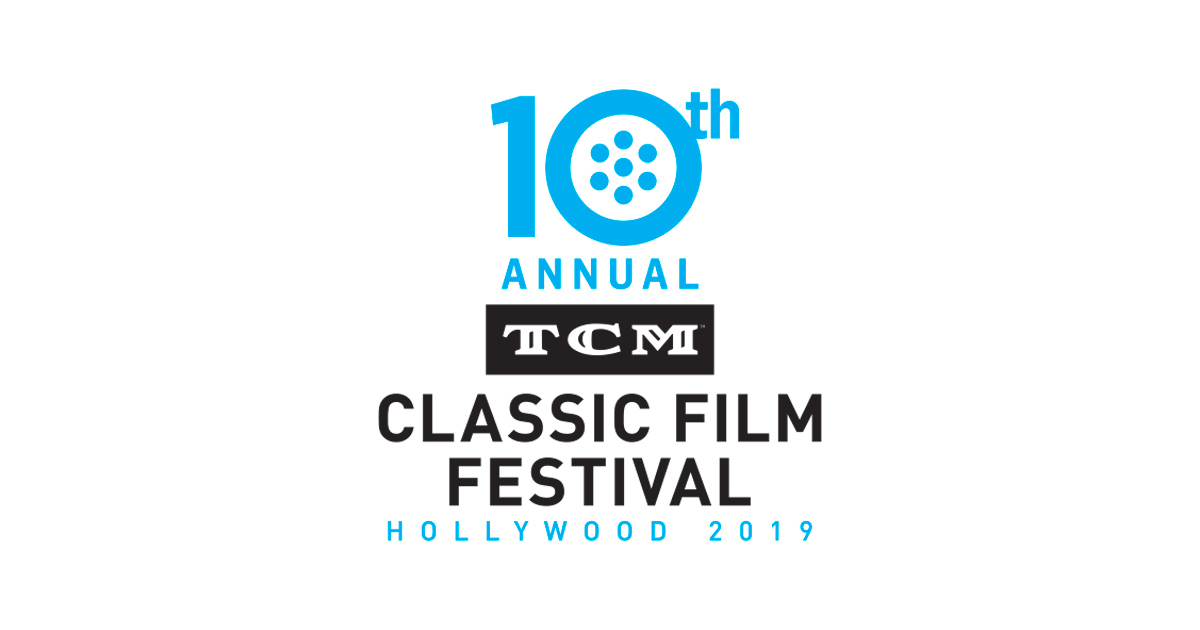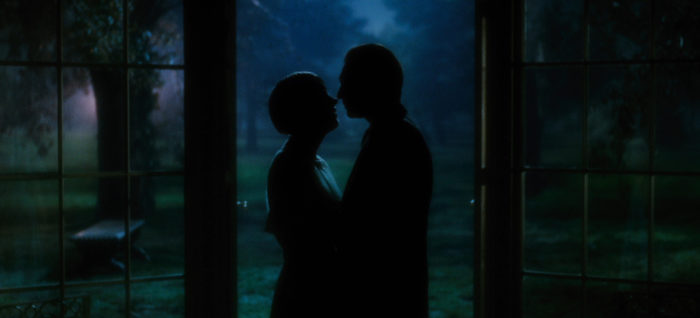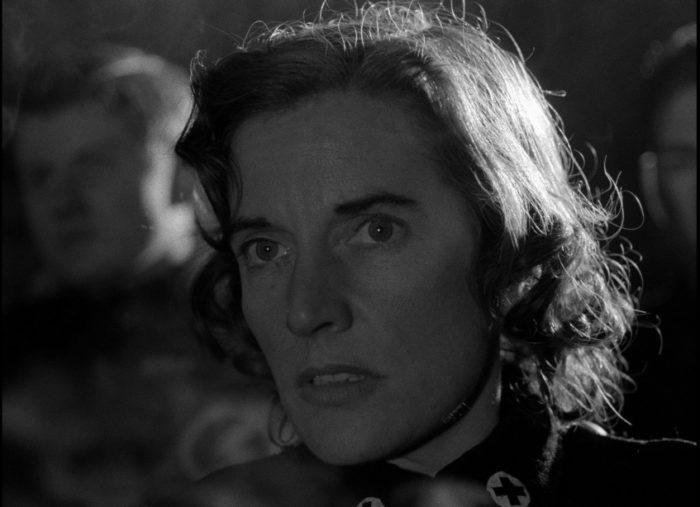
“We didn’t know what the National Socialism was, really,” Kevin Brownlow recounted as part of his introduction to his incredible 1965 film It Happened Here. He spoke about how, as young people coming up in the postwar years, Nazism was a forbidden subject. They knew they were the bad guys, and loosely what they had done, but not truly what the party stood for. What adult would want to explain that?
Unfortunately over the past couple years, we’ve all been forced to think a lot more about Nazis than we’d like to, and part of that for me has turned to thinking about their portrayal in mass media. I wonder if the movies, which have gradually turned Nazis into cartoonish villains, the swastika gradually transformed from a symbol of absolute hate into just another villainous logo. Could this softening in part explain the way it has been embraced more and more, the way the media no longer regards those bearing it as automatically beneath contempt?
Take a wide enough survey of classic film and you’ll quickly hit a few dealing with Nazis. Just because they were closer to the time doesn’t automatically make them more complex – films made during the war often portrayed the concentration camps as a mere inconvenience, for it would take years after the war for most of the outside world to understand what was happening within them, and how widespread it was. Films from the 1950s addressing the war tended to approach the subject cautiously, suggesting the gravity that audiences were able to bring to it.

But by the 1960s, Nazis started to be placed in stock villain roles, and the push-pull between history and entertainment is well on display in 1965’s The Sound of Music. In it, Captain Georg von Trapp (Christopher Plummer) resists joining Nazi forces in occupied Austria, though that’s really a background story to that of his children, whom he ignores, finding their capacity for personal expression through their new governess, Maria (Julie Andrews). The first half of the film only hints at the rising Nazi threat; the second begins under occupation.
The von Trapps were a real family, and while the film plays fast-and-loose with their biography, this essential struggle has historical roots. The first act of the film is where it is largely at its best, containing the first portrait of nearly all the musical’s songs (and certainly all of its most famous ones). Within the second act, though, the songs begin to take on another meaning, their implications more national than personal, their tone more somber than celebratory. But when it comes to portraying the Nazis themselves, the film falls a bit short, portraying them more as strict policemen than genocidal murderers, and I’m not sure what the musical reprise of “My Favorite Things” adds to the climactic chase.
Still, this was the first time I’d seen the film all the way through, and seeing it on a truly breathtaking 70mm print was a truly great experience of a film I found otherwise nearly faultless. The songs, with which I was already extremely familiar from just being a living American, feel as fresh as though I’d never heard them thanks to Robert Wise’s extraordinary direction (is the camera ever in a less than ideal place throughout the film?), which is not only sharp and well-observed but slyly undercuts the film’s tremendous potential for schmaltz. Not that it isn’t sappy, and I do not deny being fairly sappy myself, so I was in great agreement with it there.

It Happened Here is really where the Nazis get theirs, in more ways than one. Brownlow’s solution to his persistent question – “who are the Nazis, really?” – developed into a film. He began working on it at age 18, and eight years later emerged an imagined portrait of Nazi-occupied Great Britain set at the end of World War II. Brownlow imagines the British reaction would not be how occupied countries were portrayed at the time – as filled with freedom fighters desperate to overthrow tyranny – but as it actually was in France and Belgium and everywhere else, as a larger populace that just wants to get on with their lives.
That larger populace is represented chiefly by Pauline (Pauline Murray), an out-of-work nurse ready to get back to work, even if the only work being offered is under the Party. She disagrees with them, of course, but she has to earn a living. Even though she doesn’t know any revolutionaries, and isn’t particularly fond of those she encountered, having lost several friends in some crossfire. But she slowly discovers that putting on the uniform of fascism has its own share of consequences even among those less overtly rebellious. And every attempt to distance herself from the ideology with which she is now associated only binds her more tightly to it. Her thin justifications about pulling together and getting the country back on its feet feel like petty excuses when she gives them; by the end, even her supposed professional mission to care and heal is no longer redeeming.
The film itself is quite accomplished, never mind for a film made over eight years using short-end stock that Stanley Kubrick sent from the Dr. Strangelove set and borrowed costumes from, as Brownlow made it sound, something of a German Army enthusiast. It feels handmade, but the result feels more lived-in. The actors have a genuine quality to them, as though they just stepped off the street, which in many respects they probably did; that effect only further reinforces the harsh light in which they are painted. The film was shot by Peter Suschitzky, who would go on to be David Cronenberg’s regular director of photography, among other notable achievements. This was his first film, and though he had the background for it – his father by that time had dozens of credits shooting documentary shorts, and like many British films of the era, It Happened Here has a bit of a docudrama feel to it – the pure talent is already extremely obvious.
I often say that movies have taught me as much, if not more, about history than I ever learned in school, and consistently give me new perspectives on that history. Yet another reason to become a cinephile, I suppose.


